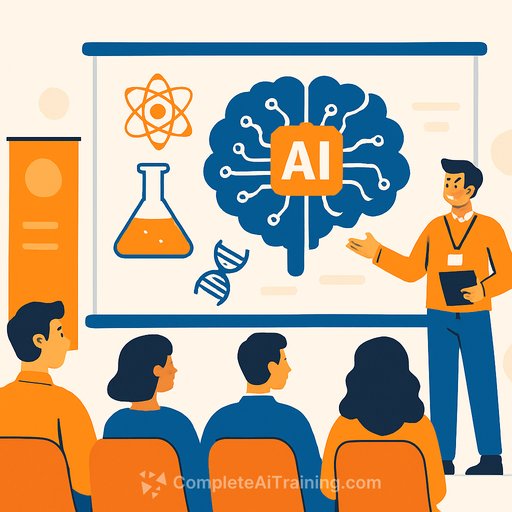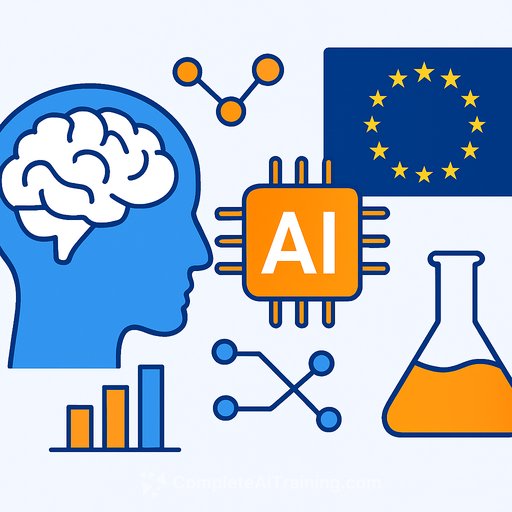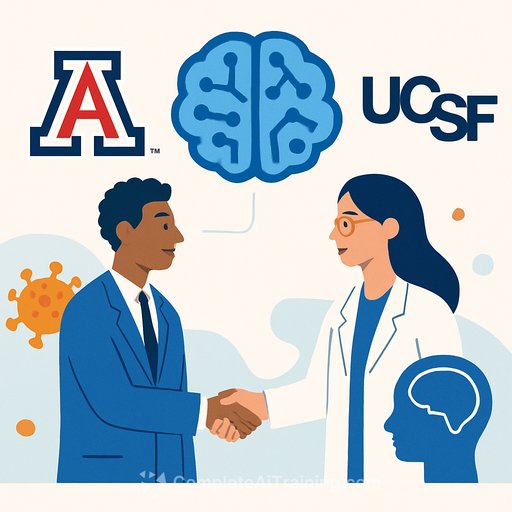# Agents4Science: A New Frontier in AI-Driven Research
In October, the first-ever Agents4Science conference will take place online. This one-day event covers all scientific fields—from physics to medicine—with a unique twist: the research, writing, and peer review will be conducted primarily by AI. Presentations will use text-to-speech technology, making the event fully AI-driven. The conference is led by Stanford computer scientist James Zou, who focuses on optimizing collaboration between humans and AI.
AI has already impacted science significantly, such as DeepMind's AlphaFold, which predicts protein structures that are difficult to determine experimentally. Recent advances in large language models and reasoning AI have pushed the idea that artificial agents can function autonomously as scientists—generating hypotheses, running simulations, and designing experiments independently.
AI Scientists Take the Stage
Despite the promise, skepticism remains. Critics argue AI lacks the creative thinking required in research, is prone to errors and hallucinations, and might reduce opportunities for emerging researchers. Still, numerous scientists and policymakers are enthusiastic about AI-driven science. The U.S. government’s AI Action Plan highlights investing in automated cloud labs across disciplines. Some believe AI agents could uncover discoveries beyond human reach. Zou sums it up: “AI agents are not limited in time. They could actually meet with us and work with us 24/7.”
Last month, Zou published a Nature article showcasing results from his group of autonomous AI agents. Inspired by this success, he launched Agents4Science to explore what other AI scientists can achieve. His criteria for a successful paper are clear: “The AI should be the first author and do most of the work. Humans can be advisors.”
A Virtual Lab Run by AI
During his PhD at Harvard, Zou spent time in a genomics wet lab, gaining firsthand experience with the challenges of interdisciplinary collaboration. He noticed that experts often use different technical languages. Zou believes large language models excel at translating jargon and generalizing concepts across fields due to their vast training data.
This insight led to the creation of the “Virtual Lab”—a team of AI agents simulating a university research group. Each agent specializes in a different field and can interact with tools like AlphaFold. Researchers provide goals for these agents, then review their interactions and proposed experiments to decide what to test in the real world.
To test this idea, Zou partnered with John E. Pak from the Chan Zuckerberg Biohub. Their first project focused on designing therapies for emerging COVID-19 variants. They trained five AI agents—including roles like immunologist, computational biologist, and principal investigator—equipped with various programs. Despite months of preparation, the agents generated therapy candidates in less than a day.
The agents chose to focus on anti-COVID nanobodies, smaller and less common relatives of antibodies. Interestingly, the models selected nanobodies because they suited the limited computational resources available. This turned out to be a smart choice: the designed nanobodies were novel and effectively bound to the original COVID-19 strain. Pak and Zou emphasize that the main contribution of their work is demonstrating the Virtual Lab as a research tool.
Yi Shi, a pharmacologist at the University of Pennsylvania who contributed to the nanobodies used, praised the automation aspect of the Virtual Lab. The article was fast-tracked for publication in Nature, reflecting the growing interest in AI-powered science.
Introducing the Agents4Science Conference
When submitting their paper, Zou encountered difficulties crediting AI as an author. Many journals and conferences disallow listing AI as coauthors and often ban AI-generated content due to concerns over accountability, copyright, and accuracy. Zou finds these policies limiting, arguing they encourage hiding or downplaying AI’s role.
Agents4Science turns this around by requiring AI to be the primary author on submissions. AI bots will also review the work, with human experts— including a Nobel laureate in economics—providing final evaluations. Zou expects hundreds of submissions across disciplines and hopes to uncover both promising discoveries and instructive errors.
Some scientists remain skeptical. Lisa Messeri, an anthropologist of science at Yale, questions AI’s ability to produce genuine leaps of insight or evaluate such breakthroughs effectively. Last year, Messeri and cognitive scientist Molly Crockett published a Nature article outlining challenges for AI in science, doubting AI’s capacity to simulate human thinking fully.
Crockett stresses the importance of human expertise in overseeing AI tools. She advocates involving philosophers, epistemologists, and anthropologists to develop more thoughtful experimental designs before relying on AI for science.
Zou views Agents4Science as a necessary experiment to gather systematic data on AI-generated science, which currently relies heavily on anecdote and hype. The conference will offer a first glimpse into what AI scientists can accomplish when given the chance.
For researchers interested in exploring AI's role in scientific discovery and automation, resources like Complete AI Training’s automation courses provide practical guidance on integrating AI into workflows.
Your membership also unlocks:






